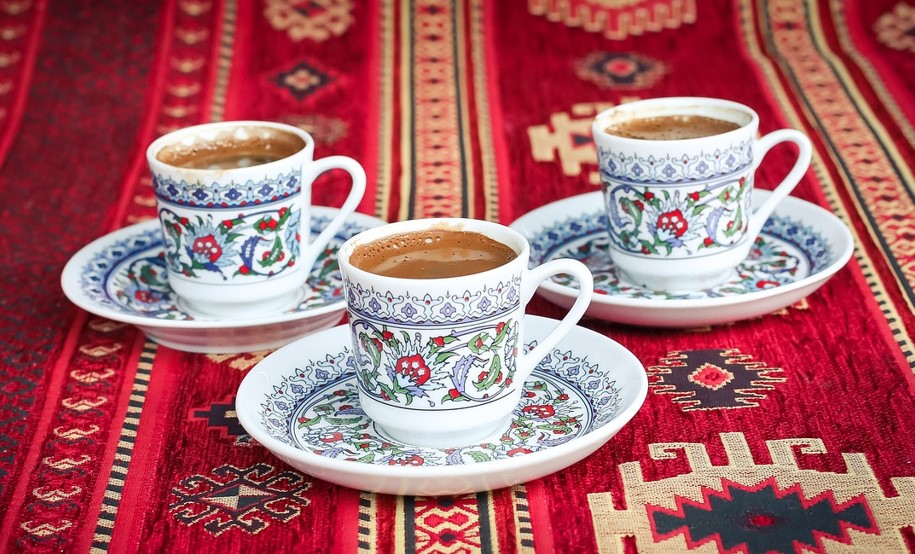The Art of Turkish Coffee: A Journey Through History and Culture

Turkish coffee is more than just a beverage—it’s an experience steeped in history, culture, and tradition. Known for its rich flavor, unique preparation method, and deep-rooted significance in Turkish society, it has become one of the most iconic symbols of Turkey’s cultural heritage. Whether you’re sipping it in a bustling Istanbul café or brewing it at home, Turkish coffee offers a taste of centuries-old traditions that continue to captivate coffee lovers worldwide.
In this comprehensive guide, we’ll explore the origins, preparation, cultural importance, and global influence of Turkish coffee. By the end of this article, you’ll have all the tools you need to understand why Turkish coffee stands out as a timeless and cherished tradition.

The Origins of Turkish Coffee
How It All Began
The story of Turkish coffee dates back to the 16th century when coffee was first introduced to the Ottoman Empire. Coffee beans were imported from Yemen and quickly gained popularity among the elite. The Ottomans refined the brewing process by grinding the beans into an ultra-fine powder and brewing them in a special pot called a cezve (or ibrik ). This method allowed the coffee to develop its signature strong flavor and thick texture.
Coffeehouses: The Heart of Social Life
As Turkish coffee spread throughout the empire, coffeehouses (kahvehane ) became central to social and intellectual life. These establishments were more than just places to drink coffee—they were hubs where poets, philosophers, and politicians gathered to exchange ideas. Coffeehouses played a pivotal role in shaping Ottoman culture and remain an integral part of Turkish social life today.
UNESCO Recognition
In 2013, Turkish coffee was added to UNESCO’s Intangible Cultural Heritage list, recognizing its historical and cultural significance. This designation highlights how Turkish coffee is not merely a drink but a symbol of hospitality, tradition, and community.

The Unique Preparation Process
One of the defining features of Turkish coffee is its meticulous preparation. Here’s a step-by-step guide to making authentic Turkish coffee:
Step 1: Choosing the Right Beans
Start with high-quality Arabica beans, which are known for their smooth and aromatic flavor. The beans should be freshly roasted and ground into an ultra-fine powder, almost like flour.
Step 2: Measuring Ingredients
For each cup of coffee, use one heaping teaspoon of coffee grounds and water measured using the same cup. Sugar can be added based on preference:
- Sade : Unsweetened
- Az Şekerli : Slightly sweet
- Orta : Medium-sweet
- Çok Şekerli : Very sweet
Step 3: Brewing in a Cezve
Combine the coffee, water, and sugar in a cezve . Heat the mixture slowly over low heat, stirring gently until the coffee dissolves. As the coffee heats, a frothy layer will form on top—this is a key characteristic of Turkish coffee.
Step 4: Serving
Once the coffee begins to rise and foam, remove it from the heat immediately to prevent boiling over. Pour the coffee into small cups, ensuring the foam is evenly distributed. Serve alongside a glass of water to cleanse the palate.
Step 5: Fortune Telling
After finishing the coffee, the leftover grounds settle at the bottom of the cup. These grounds are often used for fortune-telling (tasseography ), adding a playful and mystical element to the experience.
Cultural Significance of Turkish Coffee
A Symbol of Hospitality
In Turkish culture, offering coffee to guests is a gesture of warmth and respect. Whether you’re visiting a friend’s home or attending a formal gathering, Turkish coffee is almost always served. It’s typically accompanied by a glass of water and sometimes Turkish delight (lokum ).
Wedding Traditions
Turkish coffee plays a central role in marriage customs. During the traditional engagement ceremony, the bride-to-be prepares coffee for her future in-laws. In a playful twist, she may add salt instead of sugar to the groom’s coffee to test his patience and character—a nod to the couple’s future compatibility.
Social Rituals
Drinking Turkish coffee is a communal activity that fosters connection and conversation. Whether enjoyed in a cozy coffeehouse or shared with family at home, it brings people together and strengthens bonds.
Why Turkish Coffee Stands Out Globally
Unchanged Tradition
Unlike many modern coffee trends, the preparation of Turkish coffee has remained largely unchanged for centuries. Its authenticity and simplicity make it a timeless classic.
Global Popularity
Today, Turkish coffee is enjoyed not only in Turkey but also around the world. Specialty coffee shops and cultural events celebrate its unique qualities, introducing new generations to its charm.
Health Benefits
Turkish coffee is rich in antioxidants and has been linked to various health benefits, including improved cognitive function and reduced risk of certain diseases. Its unfiltered nature means it retains more of the coffee bean’s natural oils and nutrients.

Tips for Enjoying Authentic Turkish Coffee
If you’re eager to try Turkish coffee, here are some tips to ensure an authentic experience:
- Use High-Quality Beans : Opt for freshly roasted Arabica beans for the best flavor.
- Invest in a Cezve : A traditional copper or brass cezve enhances the brewing process.
- Experiment with Sugar Levels : Adjust the sweetness to suit your taste preferences.
- Take Your Time : Turkish coffee is meant to be savored slowly, allowing you to appreciate its complex flavors.
- Learn Fortune-Telling : Add a fun element to your coffee ritual by reading the grounds after finishing your cup.
Modern Adaptations of Turkish Coffee
While traditional methods remain popular, modern adaptations of Turkish coffee have emerged to cater to contemporary tastes. For example:
- Flavored Variations : Some cafes offer flavored versions, such as cardamom or cinnamon-infused Turkish coffee.
- Cold Brew Options : Cold Turkish coffee, brewed slowly over ice, provides a refreshing twist during warmer months.
- Fusion Recipes : Chefs and baristas experiment with Turkish coffee in desserts, cocktails, and even savory dishes.
Despite these innovations, the essence of Turkish coffee remains unchanged—a testament to its enduring appeal.
Turkish coffee is more than just a drink—it’s a celebration of history, culture, and human connection. From its humble beginnings in the Ottoman Empire to its status as a UNESCO-recognized tradition, it continues to enchant people across generations and borders. Whether you’re a seasoned coffee enthusiast or a curious beginner, exploring the art of Turkish coffee promises a delightful journey into the heart of Turkish heritage.
By understanding its history, mastering its preparation, and appreciating its cultural significance, you can fully immerse yourself in this timeless tradition. So grab a cezve , brew a cup, and let the magic of Turkish coffee transport you to another era—one sip at a time.















